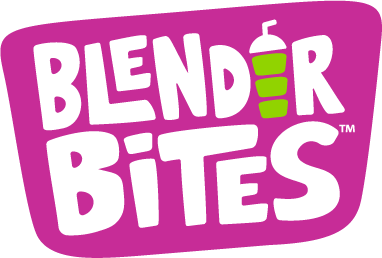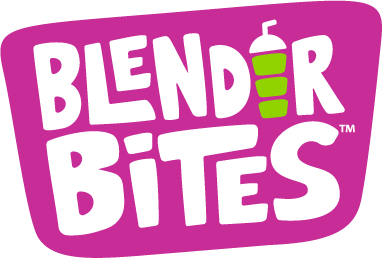Smoothies have become a staple in modern-day diets. Bursting with vitamins, minerals, and antioxidants, it’s the go-to choice for health-conscious individuals seeking a delicious and convenient way to pack in nutrients. But here’s the secret to a truly exceptional smoothie: it all starts with the liquid base. Choosing the right foundation not only influences the taste but also determines the nutritional profile of your blended masterpiece.While the choice of fruits, vegetables, and other ingredients is essential, the liquid base you choose can make or break the overall taste and texture of your smoothie. Let’s get into it.
Water-Based Smoothie
Choosing water as the liquid base for your smoothies offers several benefits. First and foremost, it’s a superb hydrator, replenishing your body’s fluids and supporting essential bodily functions. Additionally, if you’re aiming for a lighter smoothie option, using water ensures that you keep your calorie intake in check.
Another advantage of choosing water is that it allows the flavors of the other ingredients in your smoothie to take center stage. By not introducing additional flavors from milk or yogurt, water lets you fully experience the natural taste of the fruits, vegetables, and other add-ins you include This can be especially appealing if you want the ingredients themselves to shine without any additional flavor profiles. Blender Bites are expertly crafted with taste in mind, so just by adding water, you will get a burst of perfectly complementary flavors. Plus, with our pre-portioned pucks, you’ll get a consistent smoothie every time!
One of the most popular options in the realm of water-based smoothies is coconut water. Derived from young coconuts, this tropical elixir not only adds a subtle sweetness to your smoothie but also provides a wealth of essential electrolytes. Rich in potassium, magnesium, and calcium, coconut water helps replenish and rehydrate the body. It also adds a unique flavor profile that pairs well with a variety of fruits, giving your smoothie a tropical twist. Drinking coconut water can also aid in lowering blood pressure, preventing kidney stones, and promoting healthier skin because of its antibacterial properties.
If you’re using water as your base, we recommend 5 oz of water for every 1 Blender Bites puck. If you prefer a thinner consistency, you can increase the amount of liquid. Conversely, if you like a thicker smoothie, you can reduce the amount of liquid.
Using water as a base gives you complete control over the consistency of your smoothie. You can adjust the amount of water to achieve your preferred thickness, ensuring your smoothie is tailored to your taste and texture preferences. There’s no one-size-fits-all approach. Experimenting with different ratios will help you find the perfect balance that suits your taste and texture preferences.
Milk-Based Smoothie
Milk-based smoothies offer a creamy, rich texture and a boost of nutrients that can enhance the flavor and nutritional profile of your beverage. Due to its protein and fat content, milk-based smoothies tend to be more filling and can help keep you satisfied for a longer period of time. This can be particularly beneficial if you’re using the smoothie as a meal replacement or as a substantial snack.
Milk, whether cow’s milk or plant-based alternatives like almond, soy, or oat milk, is a good source of essential nutrients like calcium, protein, and vitamins. These nutrients contribute to strong bones, muscle function, and overall well-being.
When selecting the ideal milk for your smoothie, it’s important to consider your specific dietary preferences and nutritional requirements. Dairy milk, derived from cows, is a rich source of calcium, protein, and various essential vitamins and minerals. Its creaminess can vary depending on the fat content, with whole milk providing a more indulgent texture compared to lower-fat options like skim or 2%.
Almond milk, a popular plant-based alternative, is naturally low in calories and lactose-free. Fortified with calcium and vitamin D, it’s a suitable choice for those with dairy, soy, or gluten allergies, though individuals with nut allergies should steer clear.
Soy milk, derived from soybeans, is protein-rich and cholesterol-free. This option is fitting for individuals with dairy and nut allergies, but not suitable for those with soy sensitivities.
Oat milk, on the other hand, is high in fiber and often fortified with essential nutrients. It’s a viable option for those with dairy, nut, or soy allergies, but those with gluten sensitivities should choose certified gluten-free variants.
Coconut milk, with its unique nutty flavor, is rich in healthy fats but lower in protein. It pairs well with tropical fruits and is generally safe for individuals with tree nut allergies, though those with severe allergies should exercise caution.
Rice milk tends to be thinner in texture, making it less creamy compared to other alternatives. It’s a suitable option for those with dairy, soy, nut, and gluten allergies.
Ultimately, the best milk for your smoothie hinges on your personal taste preferences, dietary needs, and any allergies or sensitivities you may have. Experimenting with different options will help you find the one that complements your ingredients and enhances your smoothie experience. If you’re using milk as a base, you might use less than 5-10 oz. to achieve your desired texture. Conversely, if you prefer a thinner consistency, you can increase the amount of liquid.
Ultimately, it’s best to start with a conservative amount of liquid and gradually add more if needed. This way, you have control over the texture and thickness of your smoothie to match your taste preferences. Remember, there’s no one-size-fits-all approach, so feel free to experiment and adjust the ratio to suit your individual tastes!
Yogurt-Based Smoothie
Perhaps the creamiest of bases, a yogurt-based smoothie offers a range of benefits. Yogurt is a natural source of probiotics, which are beneficial bacteria that support a healthy gut microbiome. These probiotics aid in digestion, help maintain a balanced gut environment, and can contribute to overall gastrointestinal health. Yogurt contains enzymes that aid in the digestion of lactose, making it easier to tolerate for those with lactose sensitivity.
Yogurt is also a significant source of protein, which is crucial for muscle repair, immune function, and overall cellular health. It’s naturally rich in essential nutrients like B vitamins, potassium, and magnesium. These contribute to various bodily functions, including nerve function, muscle contraction, and energy metabolism. The high protein content in yogurt-based smoothies can help increase feelings of fullness and satiety, potentially reducing overall calorie intake throughout the day. This can be beneficial for those aiming to manage their weight. When combined with a variety of fruits, vegetables, nuts, seeds, and other ingredients, yogurt-based smoothies can provide a well-rounded and balanced nutrient profile, supporting overall health and well-being.
The ideal ratio for a yogurt-based smoothie, like any other smoothie, can vary based on personal preference and desired consistency. As a general guideline, you might start with – yep, you guessed it, 1 to 1.5 cups of yogurt per 2 cups of solid ingredients (fruits, vegetables, etc.)
This ratio provides a good balance of creaminess from the yogurt and the other ingredients. However, you can adjust the ratio to suit your taste and texture preferences. If you prefer a thicker smoothie, you can increase the amount of yogurt. Conversely, if you want a thinner consistency, you can add a bit more liquid, such as milk or juice.
Remember, the best approach is to start with a conservative amount of yogurt and adjust as needed. This way, you can tailor the thickness of your smoothie to your liking. Keep experimenting until you find the perfect balance that suits your individual taste and texture preferences.
Another option, if you are looking for a meal idea, is to make a smoothie yogurt parfait. This is our favorite go-to recipe that we love.
Ice Cream-Based Smoothie
Or do we call this a milkshake? Save this for when you’re looking to indulge in a dessert-like treat or create a special occasion bevera-ya know what? Scratch that. You do you queens and kings. Have this whenever and wherever you want! While it may not boast the same level of nutritional benefits as other smoothie bases, it offers that sweet, sweet reprieve from the ordinary.
Smoothies offer a delightful and customizable way to incorporate nutritious ingredients into our diets, catering to diverse tastes and dietary requirements. Whether opting for a hydrating coconut water base, a protein-rich milk base, or the indulgent allure of an ice cream-based delight, the possibilities are virtually endless. The key lies in selecting the right base, striking the ideal ratio, and personalizing the blend to suit individual preferences and nutritional goals. So, whether you’re seeking a refreshing, low-calorie option, a protein-packed meal replacement, or an indulgent treat, smoothies provide a canvas for culinary creativity and nourishment, making them a versatile and enjoyable addition to a healthy lifestyle.

